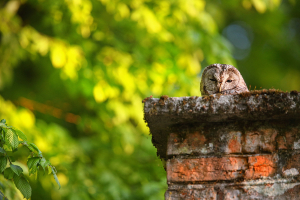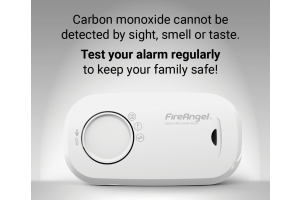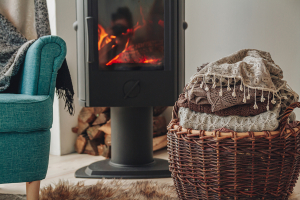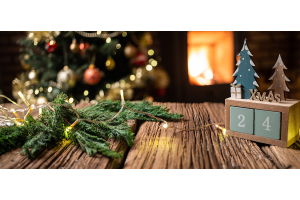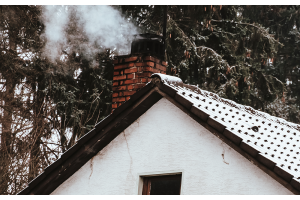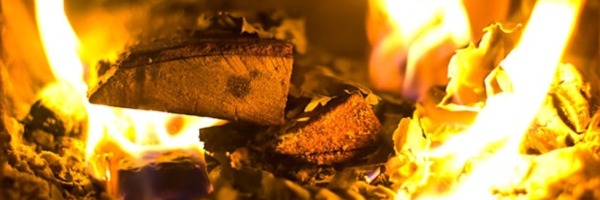
If you own a stove or fireplace it is important to know that you can’t just burn anything.
We have complyed a list of 10 things you shouldn’t burn.
Treated or Coated Wood
Did you know when you burn treated or coated wood you could be breathing in toxic chemicals that are released into the air as you breathe? An example is that manufacturered wood is treated to withstand rot and insects. All these types of wood contain a mixture of chemicals that when burned release toxic fumes that are dangerous to humans.
Cardboard
It is tempting to use cardboard to start your fire because it burns quickly. Similarly if your fire starts to die down it can be too easy to grab some cardboard but like treated wood this can be just as harmful for you. Pizza boxes, cereal boxes etc are often painted and treated with chemicals which should not be breathed in.
Lighter Fluid
To put it plainly never use lighter fluid, charcoal starter fluid or any other form of accelerant to start a fire. These products are designed to be used specifically for their intended purposes and should NEVER be used for any form of indoor fire. This is because they contain methanol or petroleum based chemicals that unsurprisingly produce toxic fumes which shouldn’t be breathed in. In addition these products are also accelerants that create a fire so hot that you could be damaging your chimney liner.
Magazines and Colored Paper
Like cardboard, coloured magazines and paper contain chemical pigments that release harmful fumes when burned. It can be tempting to just throw these on your fire to give it that little bit of a boost but what many fail to forget is that is harmful for your health. Newspaper is fine to use, but any coloured inserts should not be tossed into your fire. It is important to remember that bits of burning paper on an uncapped chimney also put your roof and structure nearby at risk of a fire.
Wet Firewood
You shouldn’t ever burn wet firewood as this is both harmful to the environment but also a very inefficient use of fuel. If you are storing firewood you should always make sure to keep it dry. As well as being much harder to light burning wet firewoods leads to a rapid creosote build up and whilst it is impossible to completely avoid creosote, burning DRY wood massively helps reduce the risk.
Allergen-Producing Brushwood
It seems obvious to most but you shouldn’t ever burn things like poison ivy or plants that contain “Urushiol”, a toxic irritant that causes rashes upon contact. We understand that in the winter when you are clearing the garden, and have excess leaves everywhere it can be tempting to just burn them all away to get rid. What most people fail to recognise though is burning just a small amount of plants containing urushiol can trigger a serious allergic respiratory reaction.
Evergreen Wood
Evergreen trees such as pine, spruce and even your old Christmas tree are so tempting to burn but these trees actually contain resins that catch fire quickly and produce a lot of heat. Whilst in theory this might be inviting, these trees burn so quickly and fizzle out rapidly that it isn’t worth it. What is worse is that these fuels actually leave a heavy creosote deposit in your chimney, which over time are known to cause chimney fires.
Wood Pallets
Finding a way to recycle wood pallets is a good idea but burning them isn’t. Whilst many people like to use shipping pallets for DIY many people are unaware that these pallets are treated with chemicals to prevent the spread of emerald ash borer, a beetle that wreaks havoc on living ash trees. A good indication is to never burn a pallet that has the “MB” stamp; this indicates that the pallet has been treated with chemicals.
Driftwood
Burning driftwood seems a good idea but it is actually really toxic to burn. Whilst it may look lovely with the blue coloured flame, these flames are actually produced by metal salts that are absorbed whilst the wood is drifting. A random fact is that many local seaside communities have banned the burning of driftwood because of the toxicity around the smoke.
Trash
It’s easy to do and many of us are guilty of doing it. You are sitting round your stove, and you throw in a bit of rubbish because you might be too lazy to go to the bin but this is so harmful! Most people are unaware that consumer products contain chemicals that produce hazardous fumes when burned. Most of these toxins found in plastic are known to increase respiratory problems, headaches, internal organ damage and even cancer.

